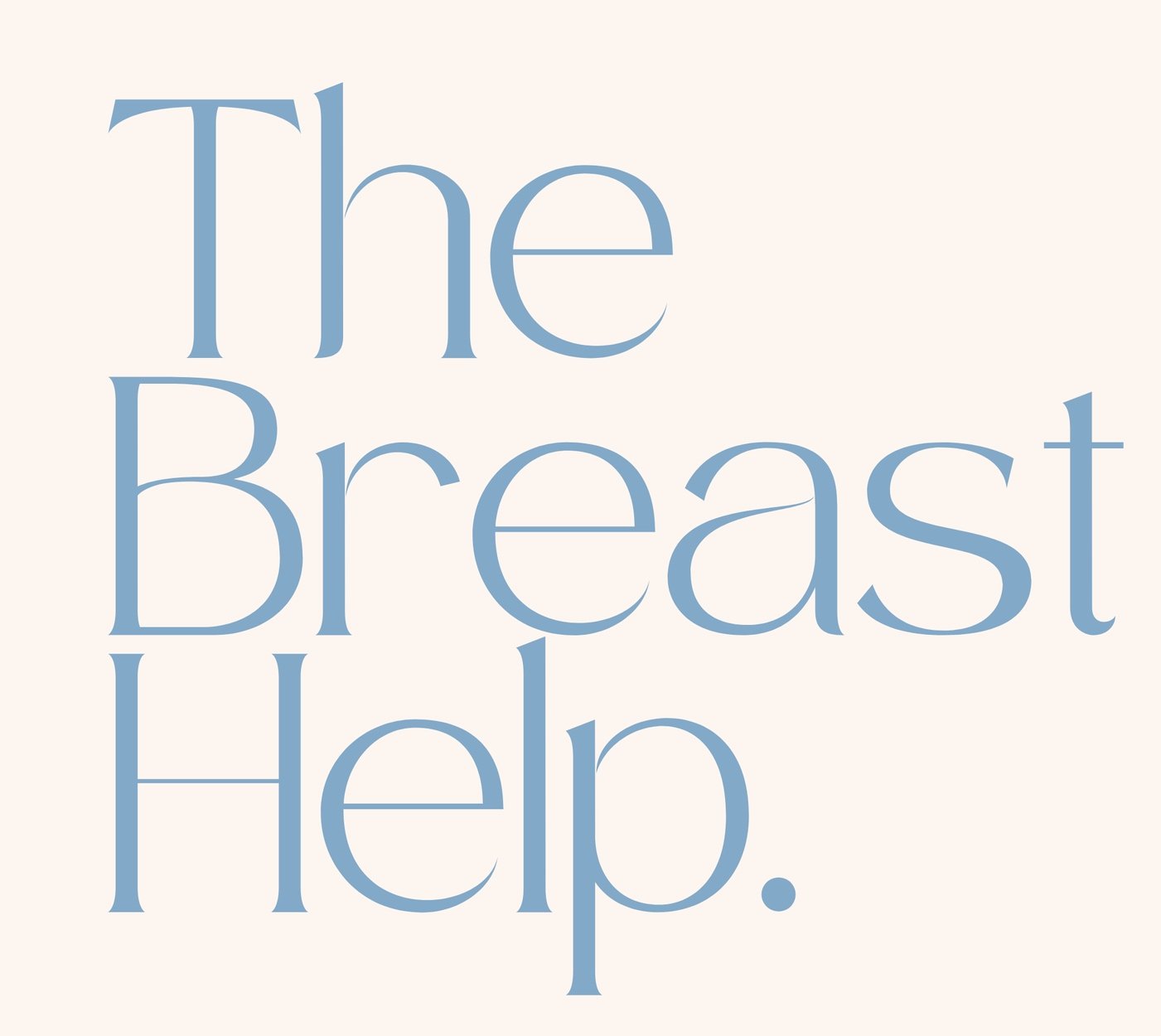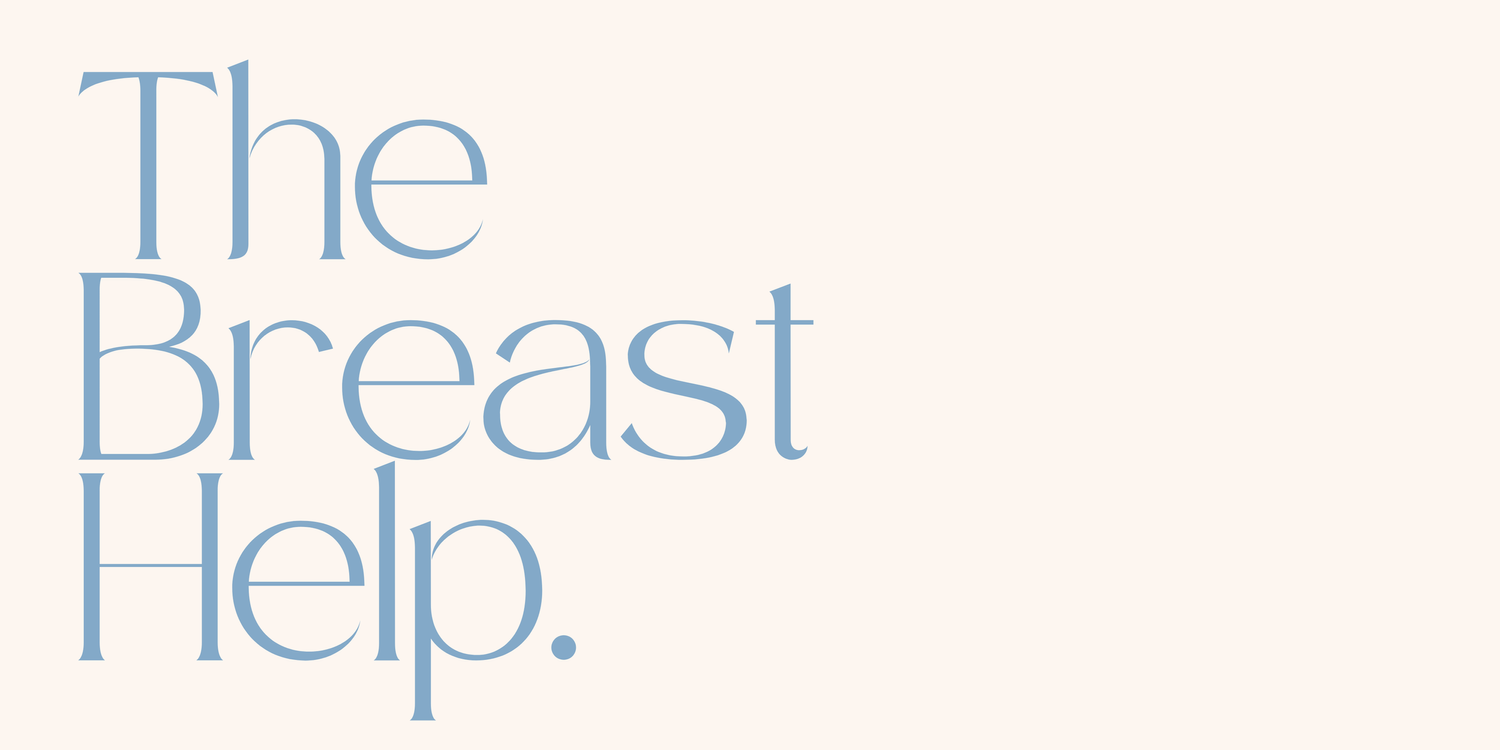Guest Post: Crysta from First Taste Nutrition — Do I Need to Go on an Elimination Diet?
Navigating Breastfeeding Nutrition: Do I Need to Go on an Elimination Diet?
Crysta is a Dietitian who helps women and families eat and feel their best. With a graduate degree in Nutritional Sciences and her Certification in Pregnancy Nutrition, she focuses on formulating specifically tailored plans for clients and providing step-by-step advice.
"My goal is to help women feel good about the way they eat, what they feed their children, and themselves."
At First Taste, we empower women to make the best choices for optimal well-being during the first 1000 days - from pre-conception, through pregnancy, postpartum, until around age two.
Welcoming a new life into the world is a beautiful and sometimes overwhelming journey.
As a breastfeeding mother, you want to do everything you can to make sure your baby receives the best nutrition. One common question that often arises is whether going on an elimination diet is necessary. Let's explore the intricacies of this decision and understand why seeking guidance from a nutritionist can be a game-changer.
The Elimination Diet Dilemma
The concept of an elimination diet involves removing certain foods from your diet to identify and address potential allergens that may affect your baby through breast milk. While this approach can be beneficial in specific cases, it's definitely not a one-size-fits-all solution.
Why Consider an Elimination Diet?
If your baby shows signs of discomfort, digestive issues, or skin reactions that may indicate an allergy or sensitivity, an elimination diet could help pinpoint the culprit.
Dairy, soy, eggs, nuts, and gluten are common allergens that some babies may react to through breast milk. Eliminating these from your diet may alleviate symptoms if your baby is sensitive.
Babies with colic or excessive gas may benefit from an elimination diet to identify and eliminate potential triggers.
Why Consult a Nutritionist?
Eliminating certain foods can impact the nutritional quality of your diet. A nutritionist can guide you in maintaining a well-rounded, nutrient-dense diet to support your health and the quality of your breast milk.
Cutting out entire food groups without proper guidance may lead to nutrient deficiencies. A nutritionist can help you find alternative sources of essential nutrients to compensate for any exclusions.
Every mother-baby unit is unique, and an elimination diet should be tailored to individual needs. A nutritionist can create a personalized plan that addresses your specific concerns without unnecessary restrictions.
A nutritionist can also help you monitor your baby's reactions and adjust your diet accordingly. This ensures that you identify and eliminate potential triggers without compromising your nutritional intake.
Dealing with dietary changes can be emotionally challenging. The right support is crucial in helping you navigate the complexities of breastfeeding while making informed decisions about your diet.
While an elimination diet may be beneficial in specific cases, it's essential to approach it with caution and with professional expertise.
Don't forget, your experience as a breastfeeding mother is one-of-a-kind, and with the proper support, you can confidently and smoothly navigate this journey.
References:
Herberth G, Hinz D, Röder S, Schlink U, Sack U, Diez U, et al. Maternal immune status in pregnancy is related to offspring's immune responses and atopy
risk. Allergy. 2011;66(8):1065-74.
Tang MLK, Mullins RJ. Food allergy: is prevalence increasing? 2017;47(3):256-61.
Mazzocchi A, Venter C, Maslin K, Agostoni C. The Role of Nutritional Aspects in Food Allergy: Prevention and Management. Nutrients. 2017;9(8).
Lupinek C, Hochwallner H, Johansson C, Mie A, Rigler E, Scheynius A, et al. Maternal allergen-specific IgG might protect the child against allergic
sensitization. J Allergy Clin Immunol. 2019;144(2):536-48.
Beckhaus AA, Garcia-Marcos L, Forno E, Pacheco-Gonzalez RM, Celedón JC, Castro-Rodriguez JA. Maternal nutrition during pregnancy and risk of asthma,
wheeze, and atopic diseases during childhood: a systematic review and meta-analysis. Allergy. 2015;70(12):1588-604.
Nylund L, Nermes M, Isolauri E, Salminen S, de Vos WM, Satokari R. Severity of atopic disease inversely correlates with intestinal microbiota diversity and
butyrate-producing bacteria. Allergy. 2015;70(2):241-4.



